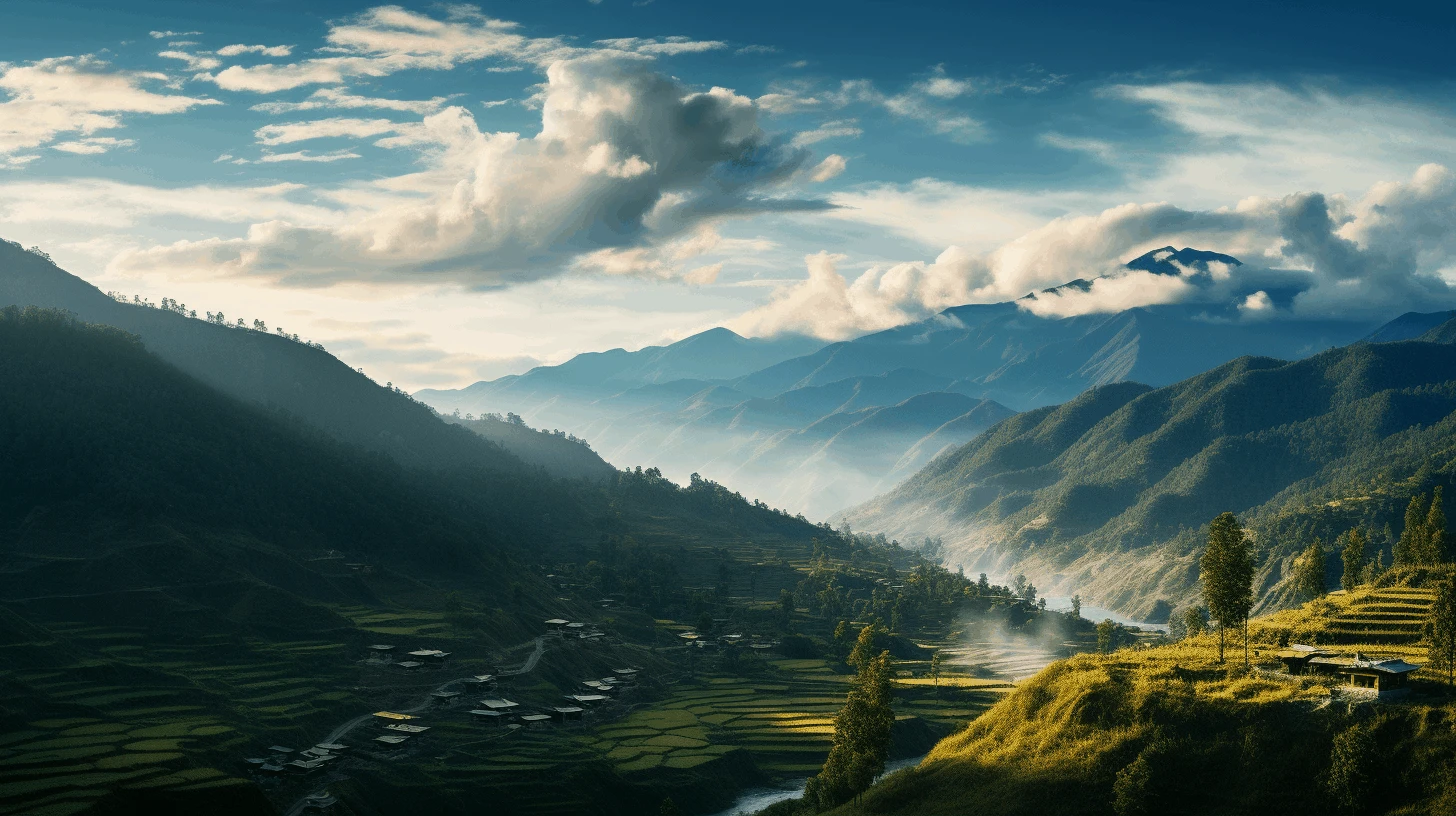
Prayer times in Bhutan
1:19 AM • +06:00 GMT
Payer Times for Cities in Bhutan
| City | Fajr | Sunrise | Dhuhr | Asr | Maghrib | Isha |
|---|---|---|---|---|---|---|
| Gelephu | 04:33 | 05:50 | 11:40 | 15:00 | 17:30 | 18:43 |
| Phuntsholing | 04:38 | 05:55 | 11:44 | 15:05 | 17:34 | 18:47 |
| Punakha | 05:06 | 06:23 | 12:12 | 15:33 | 18:02 | 19:15 |
| Samdrup jongkhar | 04:29 | 05:46 | 11:36 | 14:56 | 17:26 | 18:39 |
| Thimphu | 05:07 | 06:24 | 12:13 | 15:34 | 18:03 | 19:16 |
Prayer Times of Others Cities in Bhutan
About Bhutan
Bhutan, known as Druk Yul or 'Land of the Thunder Dragon' to its residents, is a landlocked kingdom situated in the Eastern Himalayas, bordered by China to the north and India to the south, east, and west. This unique country encompasses an area of about 38,394 square kilometers and is predominantly mountainous, with altitudes ranging from 160 meters to over 7,000 meters above sea level. Bhutan's population of approximately 770,000 people is ethnically diverse, including groups like the Ngalops, Sharchops, and Lhotshampas. The capital and largest city is Thimphu. Bhutan is famous for its Gross National Happiness index, an indicator that measures the country's collective happiness and well-being instead of purely economic indicators. The country's economy is primarily agrarian, with agriculture, forestry, and hydropower making significant contributions. Culturally, Bhutan has a rich heritage steeped in Buddhism, the state religion, and it is home to many monasteries and fortresses (dzongs) which often serve as administrative centers. The country's culture is deeply rooted in its Buddhist heritage, with festivals like Tshechu offering colorful displays of traditional dances and costumes. Bhutan also offers an array of natural wonders, from high mountain peaks, serene valleys, and lush forests, to its unique fauna which includes the national animal, the 'takin'. Despite being one of the smallest countries in the world, Bhutan stands as a bastion of environmental conservation, with laws stipulating that at least 60% of its land must remain under forest cover. It is the world's only carbon negative country, absorbing more carbon dioxide than it produces.